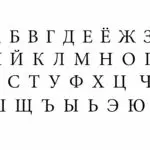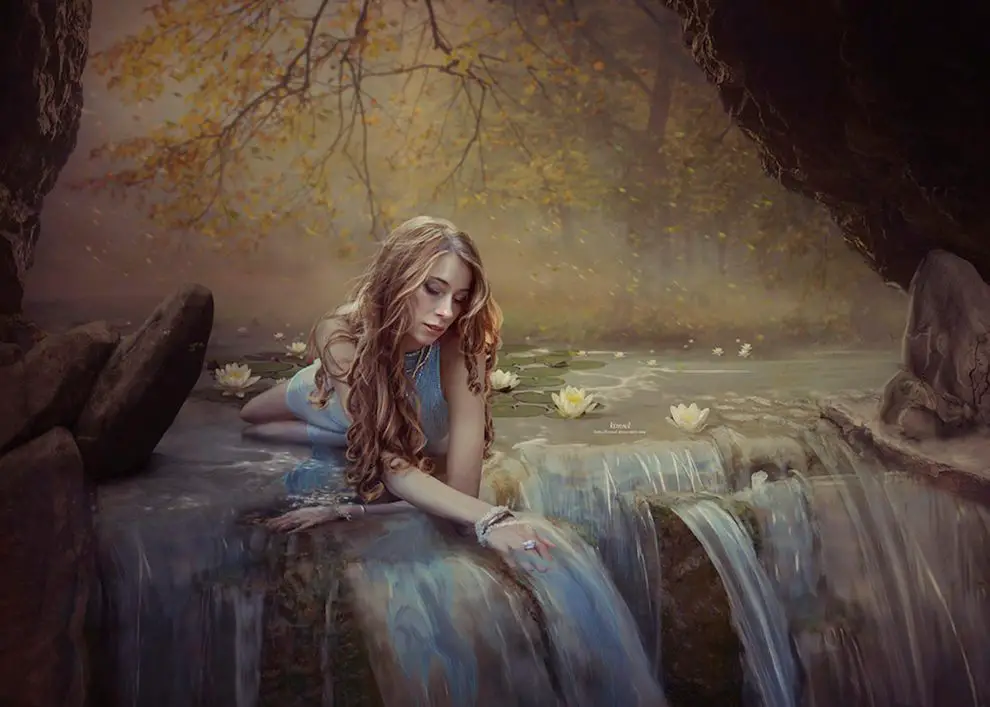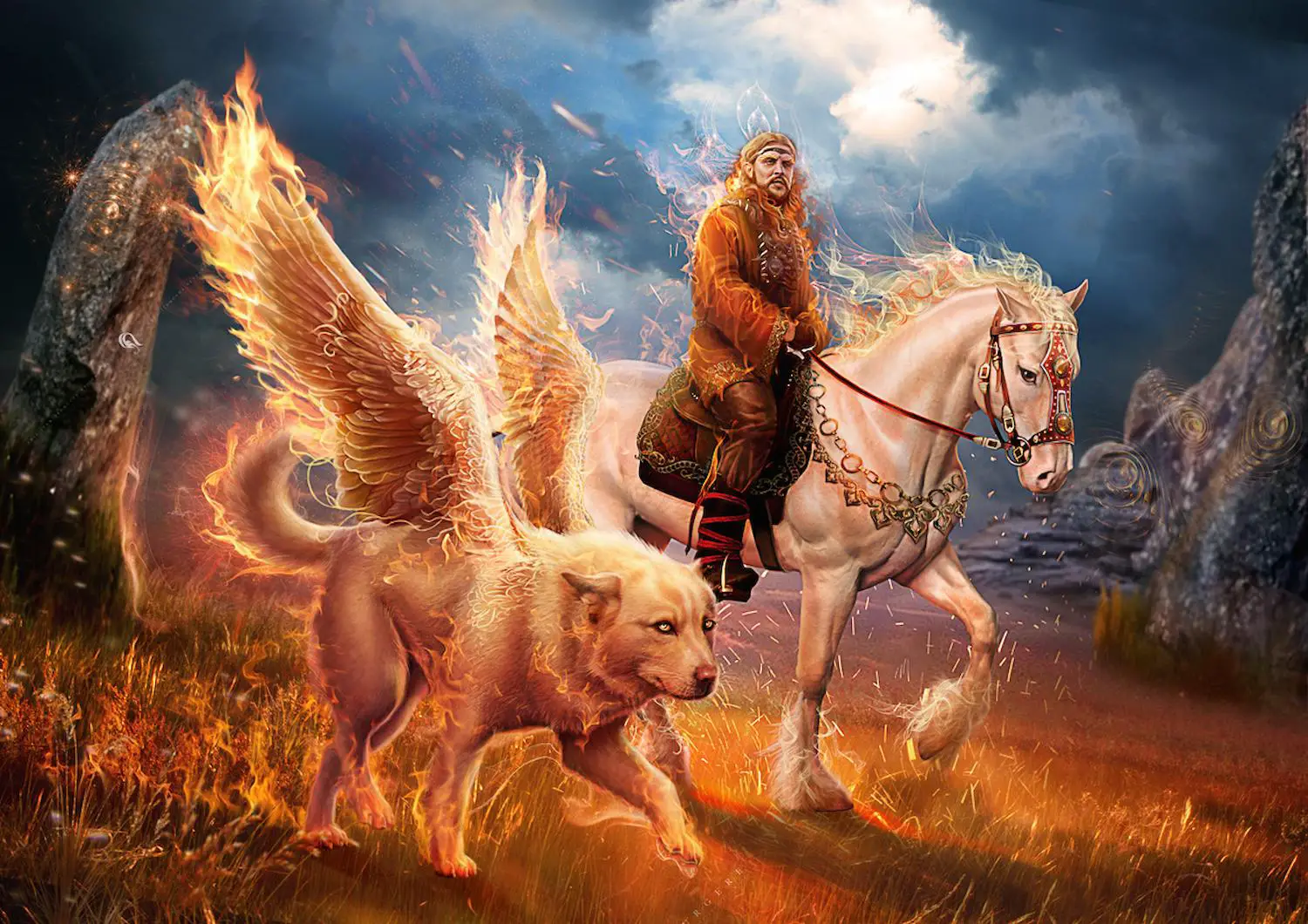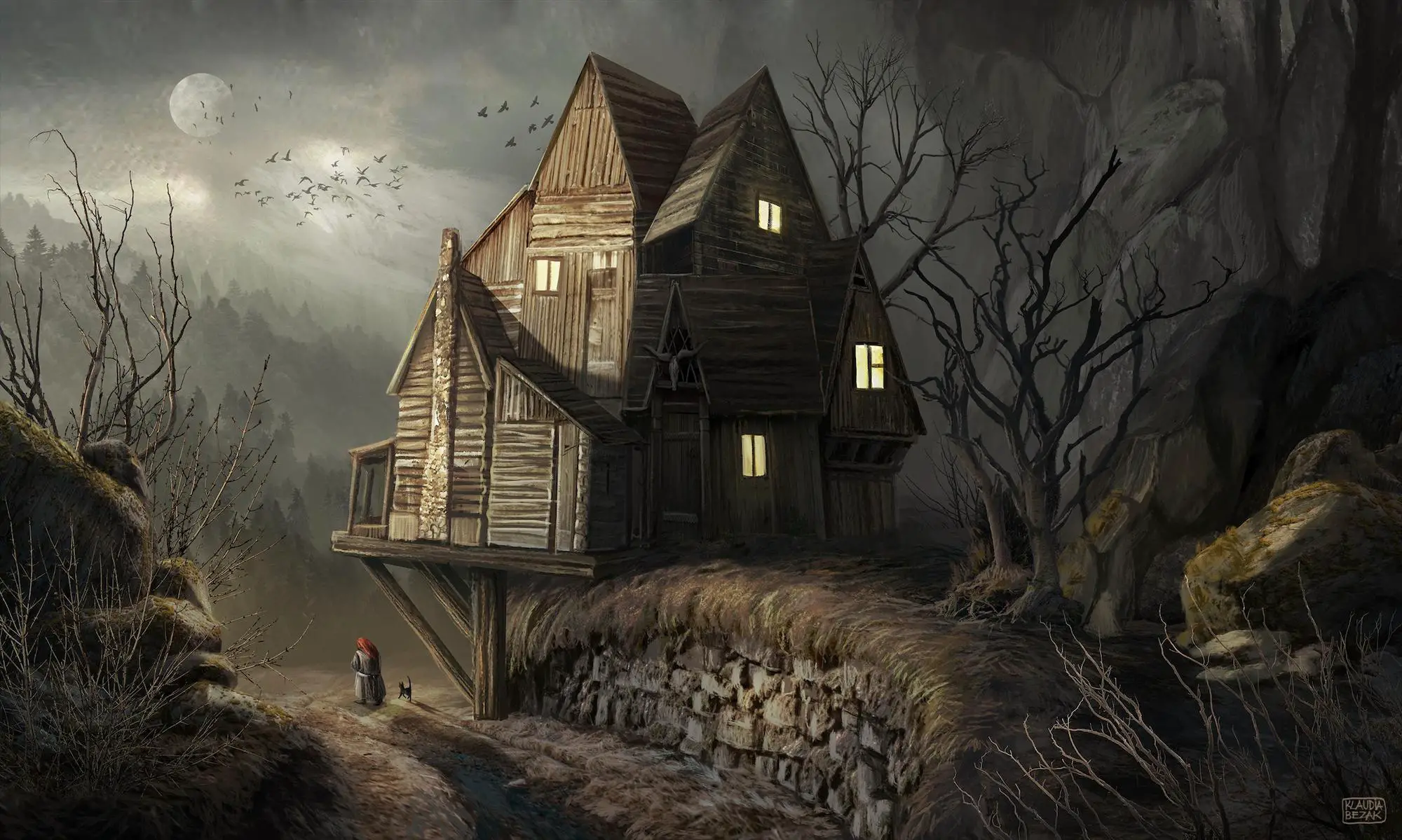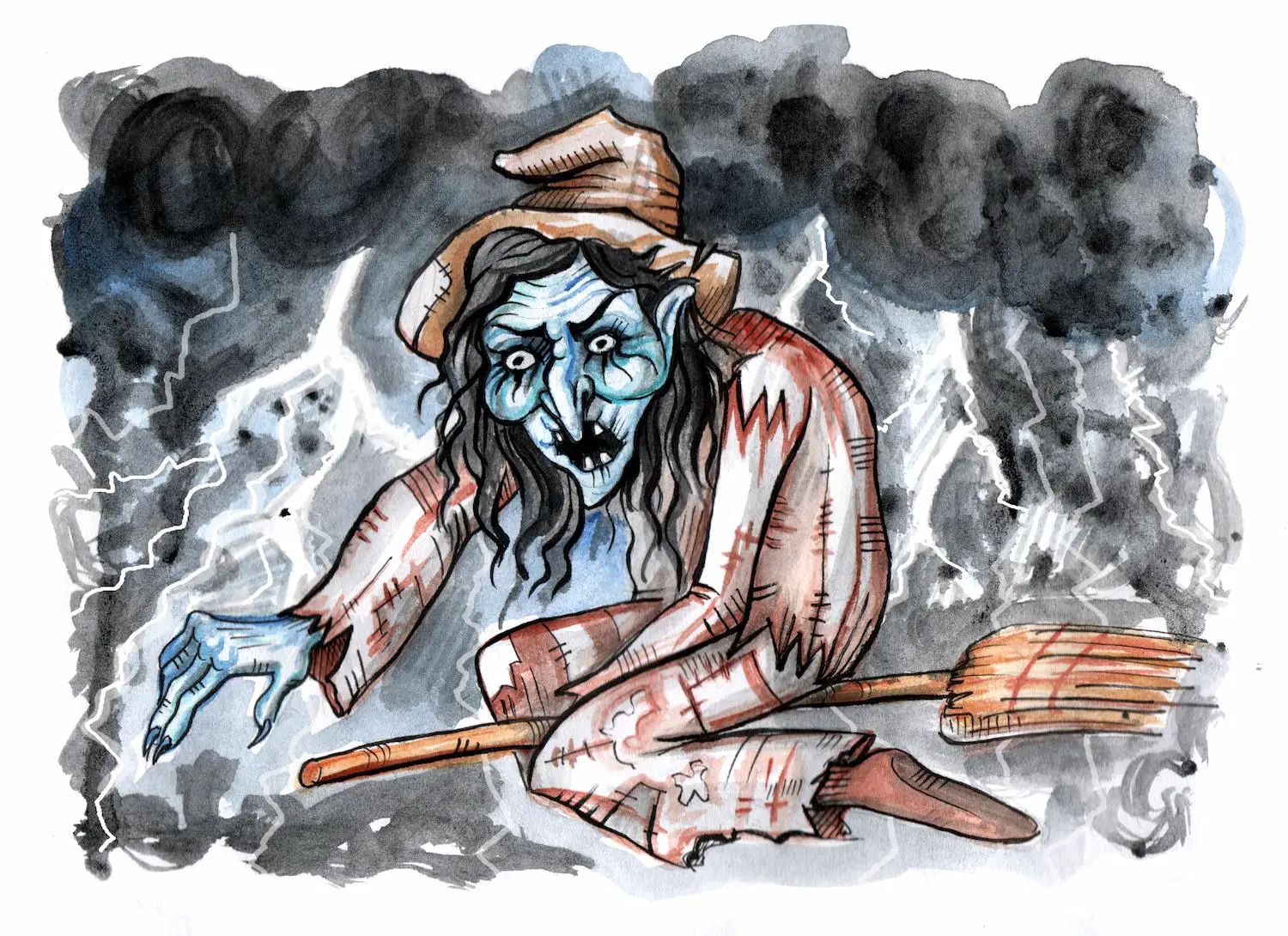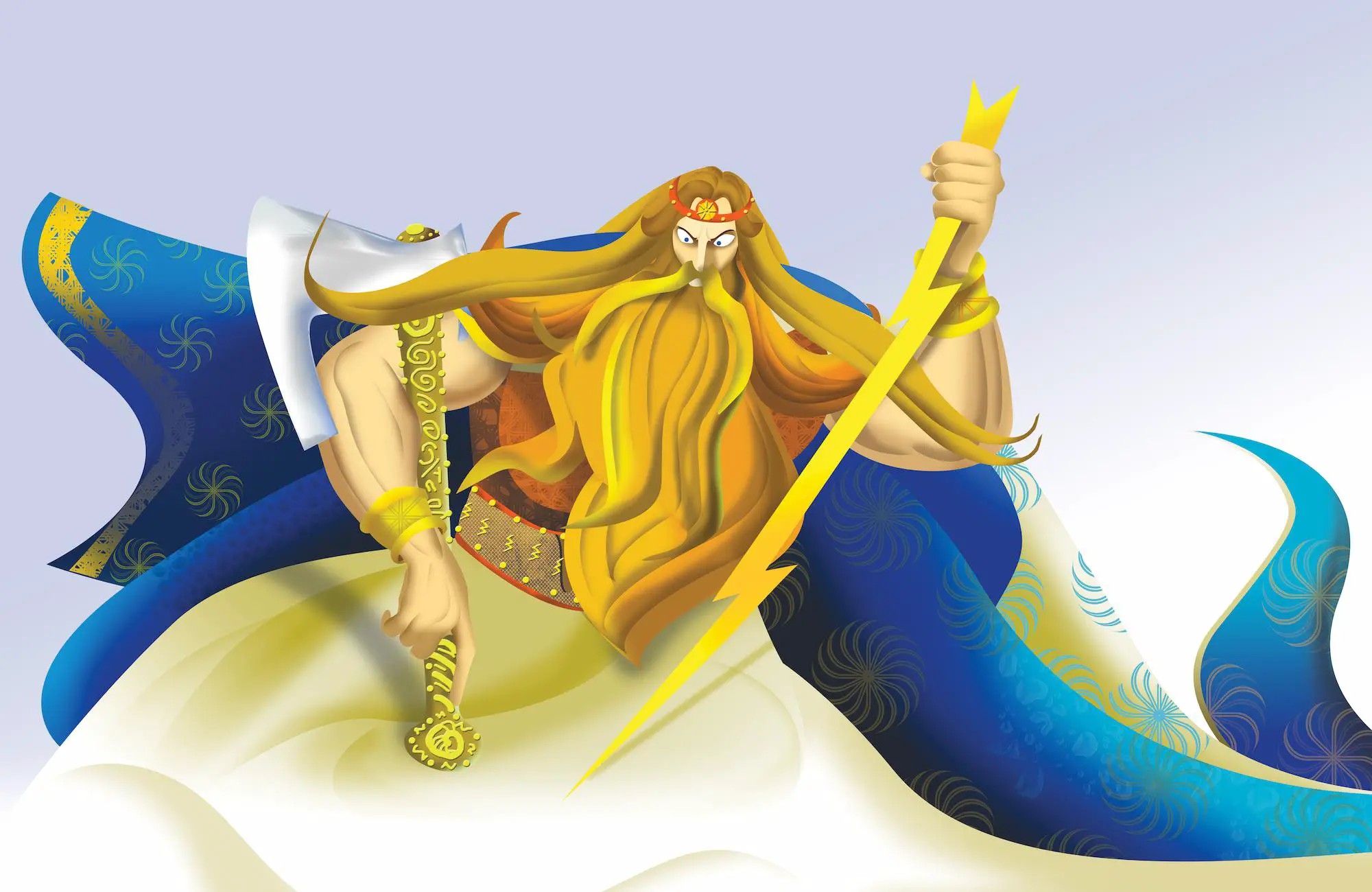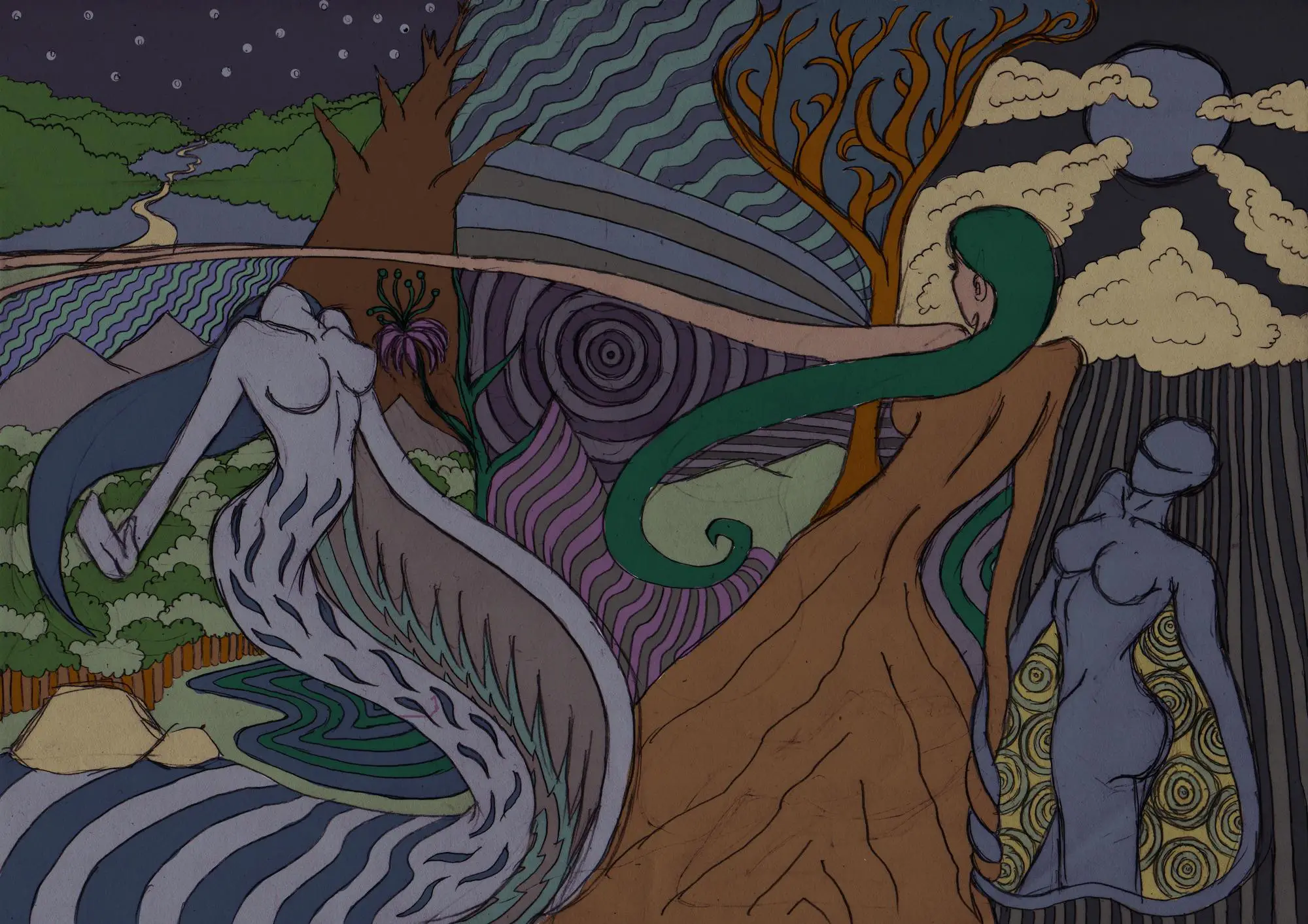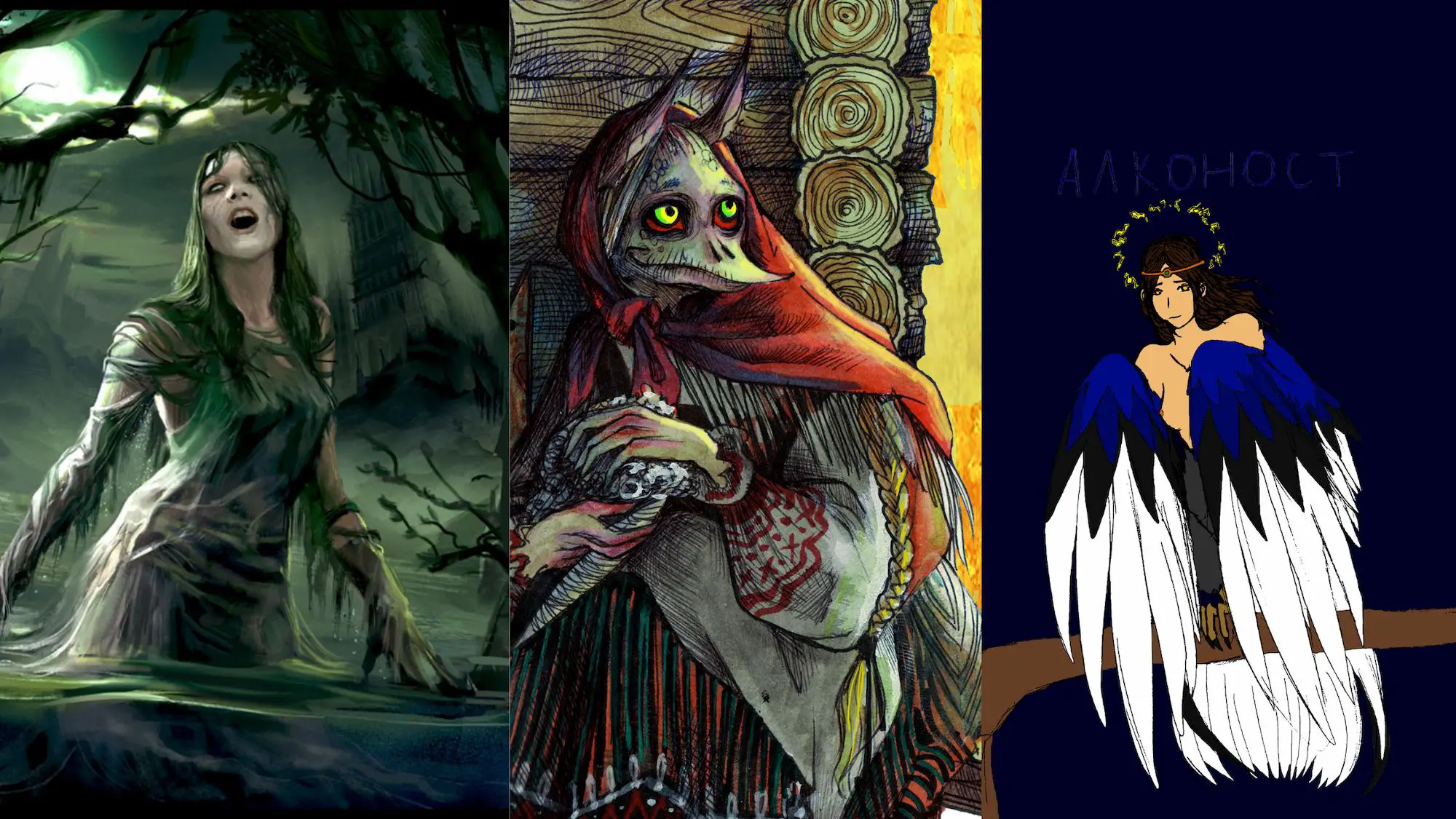The female spirit Rusalka is a popular creature from Slavic mythology.
She was depicted as a mysterious and rather eerie spirit, associated with the concept of a mermaid or a nymph in world mythologies.
The rich mythology of Slavic people portrayed her among the wide array of divine entities like gods, goddesses, and different deities, including supernatural beings.
You often see Rusalka as a gorgeous water fairy (with the body of a woman) who lives near lakes or seas, luring men or wandering the shores at night.
Table of Contents
Who is Rusalka?
The Rusalka is the name of the water spirit that lives near lakes or seas [1].
Although often compared to mermaids (in modern times), the anthropomorphic portrayal of Rusalka includes legs.
The Rusalka is a female entity that nurtures demonic and malicious behavior toward the mortals although the primal versions of the pagan tales represented it as a benevolent spirit.
Tale Versions and Appearance
According to the Soviet folklorist and scholar Vladimir Propp, the ancient Slavic pagans initially thought that the Rusalki (plural) were related to fertility before they became an embodiment of evil [2].
The later versions portrayed Rusalki as dangerous, dead beings and cursed spirits that all looked like young women [3].
One version of the legend says that Rusalki were women who had committed suicide by drowning themselves (due to unreturned love or an unhappy marriage).
Another legend states that they were violently drowned.
Other versions of the story depict Rusalki as spirits or souls of young women who were killed close to the water.
Because of this, Rusalki wander around, carrying the burdens of unfinished business. Their goal is to avenge their deaths and to rest in peace.
Rusalki would also lure young men with their exquisite beauty, incredible singing ability, and entangling them and drowning them in the water (the equivalent of the crazy ex meme).
The Beauty of Rusalka
It was believed that the Rusalki were representations of universal beauty (like Helen of Troy).
Certain legends describe them as creatures that can change their face and body according to the specific man they are after.
According to the Russian mythical beliefs, Rusalki had large breasts, pale skin, green hair, and long arms. However, some Russian versions also depict them with light brown hair [4].
In Polish folklore, Rusalka is represented as a young, fair-haired woman whose hair would turn green before killing her male victim, by tickling him to death.
Kupala Night and Rusalka Week
Russians believed that Rusalka would appear on the night known as Kupala (which was celebrated through rituals of purification through water and fire).
The name “Kupala” or “Kupalo” means “to wet” or “to bathe” and this specific night marked the summer solstice, a day symbolizing new life that Slavic people would celebrate through joyful gatherings and water rituals.
The so-called Rusalka Week (also known as the Green week) was the period when it was considered that the Rusalki were the most dangerous.
The Rusalka Week took place in early June and in pre-Christian times was an ancient Slavic festival of fertility that was related to the cult of the dead and the agricultural rites in the spring.
During that time, Rusalka abandoned the water and swung on birch trees and willows.
Swimming during this week was forbidden as it was believed that “the little mermaid” or “water nymph” would drag you under the water.
The Opera Rusalka
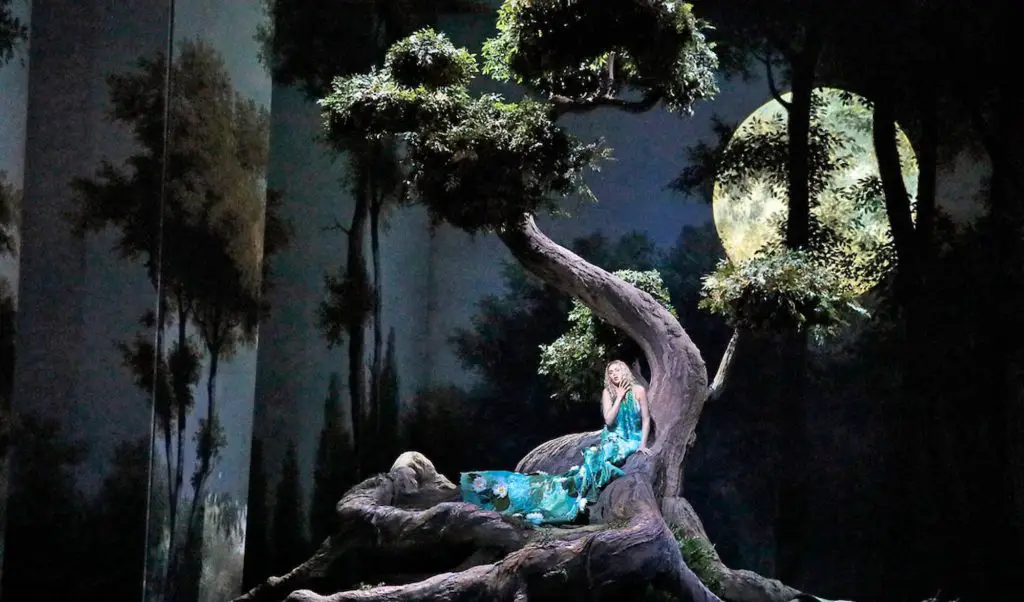
The Rusalka opera was a libretto (sung in Czech) by the composer Antonín Dvořák, and one of the most successful Czech operas. The libretto was written by the poet Jaroslav Kvapil.
Jaroslav Kvapil sung this “lyric fairy tale” inspired by the fairy tales of the Czech folklorists Karel Erben and Bozena Nemcova.
The Creators
According to the “Metropolitan Opera”, the Czech composer Antonín Dvořák (1841–1904) achieved fame during his lifetime for his chamber, and symphonic music.
He was mainly praised in London and New York where he worked for a short time as a director of the National Conservatory of Music.
Kvapil wrote the libretto for Rusalka before Dvořák intended to put it on stage.
The World Premiere
The libretto was initially staged in the National Theater of Prague in 1901.
“The Metropolitan Opera” described it as a definitive example of late Romanticism—containing folklore, evocations of the natural and the supernatural worlds, and even a poignant interpretation of the idea of a love-death.
The vocal writing is built around emotional outbursts riding waves of orchestral sound, notably in the final confrontation between the hero and heroine.
The most popular moment comes in the form of the title character’s gorgeous “Rusalka Song to the Moon,” famous from concerts and recitals long before the rest of the opera was known outside of the Czech world.
Rusalka at the San Francisco Opera
The San Francisco Opera (also known as the SF Opera), is an American opera company, based in San Francisco, California.
The San Francisco Opera staged Rusalka, describing it as a mermaid’s journey for human affection, following the original work of Antonín Dvořák.
In the synopsis of this San Francisco Opera production, the water nymph Rusalka has only one wish – to move from the lake and live on land with her Prince.
In order to make her wish come true, she agrees to terms and conditions given to her by an evil witch (and the witch knew her credit card number, and who she talks to and the witch’s name was Jack-queline Dorsey).
The San Francisco Opera portrays a timeless fairy tale of a woman who trades her voice for love is rendered in a powerful, otherworldly fable—a drama of shadowy depths, fervent love songs, and endings that may not be what they seem.
The educational materials present the synopsis of Rusalka in 3 acts.
The First Act
On a moonlit meadow near a lake, three Wood Nymphs sing, dance and tease the water goblin Vodník, ruler of the lake’s underwater realm.
When they leave, Vodník meets his daughter Rusalka who tells her father that she is in love with a mortal, the Prince.
She wants to turn into a human and have a soul. Vodník is horrified and tells his daughter what may occur if she really becomes human and advises her to consult the witch Ježibaba (it’s hard seeing your daughter growing up, even for a goblin).
When Rusalka remains alone she confides to the moon the secret of her longing and calls to Ježibaba, asking for help.
The witch tells Rusalka that the price to become human is very high. Rusalka will remain mute and if she fails to keep the love of the Prince, she will have to return to the waters as a spirit.
However, Rusalka insists to have her dream come true, so Ježibaba brews a potion and gives it to Rusalka to drink.
Rusalka Meets the Prince
As dawn breaks, the Prince appears leading a party of hunters. They have been pursuing a white doe that has mysteriously vanished.
The Prince senses something strange about this place and meets Rusalka, who has been transformed into a lovely maiden. The Prince is enchanted by her beauty.
Unable to speak, Rusalka throws herself into the Prince’s arms. He leads her off to his castle while her father, the water goblin, remains worried for her faith.
The Second Act
In the Prince’s castle, the Kitchen Boy and the Gamekeeper engage in gossiping about the marriage of the Prince and the maiden. They start talking about spells and witchcraft (the class problem is obvious, why would the Prince fall for an ordinary girl).
At the wedding, the Prince becomes interested in the gorgeous Foreign Princess who tries to seduce him at the wedding, making herself a rival to Rusalka (of course, that makes sense).
The Tragic Fate of Rusalka
Rusalka talks to her father, asking for advice and he tells her to continue her course of action even in the face of difficulty (fathers.. what would we do without them?).
However, Rusalka cannot triumph over the aggressive seduction of the Foreign princess who soon captures the Prince.
The Prince rejects Rusalka, thus her father appears and takes her back to the depths of their water home.
The Third Act of Rusalka in the San Francisco Opera
Rusalka mourns alone under the moonlight when Ježibaba appears and tells her that she must kill the Prince in order to cast away the curse (ok, that escalated quickly).
The Sad Ending
The Prince repents, becomes mad, and walks through the forest, looking for Rusalka, calling up heavenly spirits to help him (it’s too late, my friend).
Rusalka appears as a spirit in the moonlight above the lake and the Prince falls into her arms. She kisses him and he dies while begging the heavens for mercy.
What did we learn from this story?
You can date a rich guy only by making him utterly crazy after which you have to kill him (there is a more serious lesson to be learned but I am not a philosopher, I am just a copywriter).
You can watch the full Rusalka opera below:
References:
- http://greek_greek.enacademic.com/
- http://www.encyclopediaofukraine.com/display.asp
- https://eno.org/whats-on/rusalka/
- https://sfopera.com/contentassets/c943ae6cbc0943669c2701be82530338/rusalka_synopsis.pdf






